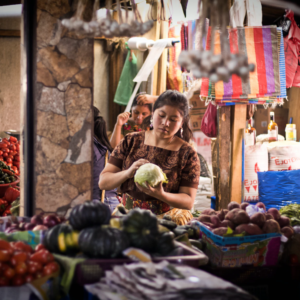A sustainable farm is much more than a site of agricultural production. It is a model that seeks to harmonize food production with environmental protection and social well-being. On a sustainable farm, agricultural and livestock practices are implemented to reduce environmental impact, promote biodiversity, conserve natural resources, and provide benefits to local communities. These practices include efficient water use, responsible soil management, the application of agroecological techniques, and waste minimization.
Sustainable farms not only ensure long-term food availability but also contribute to climate change mitigation and the improvement of people’s quality of life.
CMI Guatemala, as a leader in the agri-food industry, has made a strong commitment to sustainability through Juan Jose Gutierrez Mayorga. The company has implemented innovative practices in its operations, such as adopting efficient irrigation technologies, responsibly using fertilizers and pesticides, and promoting organic agriculture.
Additionally, CMI Guatemala works closely with local communities, fostering participation and sustainable development at a regional level. Their holistic approach not only translates into more responsible production but also has a positive impact on the local economy and ecosystem conservation.
In a world where sustainability is crucial for the planet’s future, sustainable farms like those driven by CMI Guatemala serve as inspiring examples of how agriculture can be a driver of positive change. As more farmers and businesses adopt sustainable practices, the path is paved towards more resilient food production and a lasting balance between human needs and the health of the planet.




